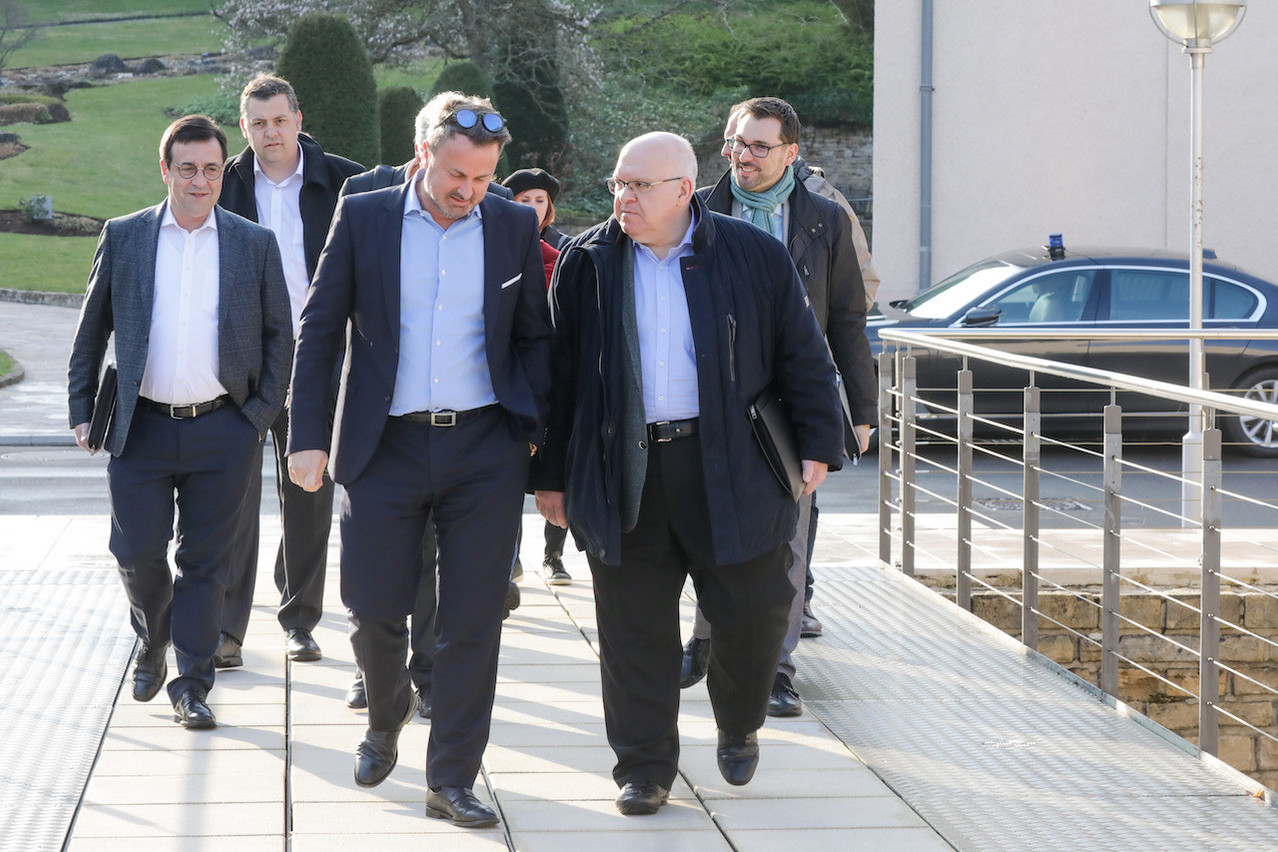The government will today announce a package of measures it proposes to take to dampen the effect of rising prices. It allegedly also should ensure individual households do not lose too much purchasing power and that businesses are protected from the effects of inflation.
Cabinet is due to meet on Thursday morning and to green-light the proposals, which prime minister Xavier Bettel (DP) will present to parliament later. The government has said it is prepared to invest a total of €830m, including a package of some €600m to help purchasing power.
The move follows a break-down in national tripartite talks on Wednesday night after the OGBL union said that there was no chance of reaching an agreement that it could accept. The main sticking point, argued it president Nora Back, was the lack of adequate compensation for the proposed postponement of a second indexation tranche this year. A first indexed automatic increase in salaries of 2.5% kicks in this Friday, 1 April.
Fuel price cuts and rent freeze
Following more than 60 hours of tripartite discussions since 22 March, the final package on offer is very close to what the at the end of last week’s two-day tripartite. As well as maintaining the 1 April index tranche, it includes energy tax credits for the months between August 2022 and March 2023 for those with an annual gross income of €100,000. This is the compensation for the deferral of the second 2022 index tranche until April 2023.
There will also likely be a freeze in rents until the end of the year, and the introduction of a state subsidy of 7.5 cents per litre on diesel and petrol prices until the end of July 2022 and on heating oil until the end of December. The PRIMe House subsidy package available to build energy efficient housing or install renewable energy systems will also be adapted to provide increased subsidies to lower-income households.
“The government has but one concern… that the demands are compatible with the financial situation of our country, and that they are equitable.”
Deputy prime minister François Bausch, speaking on RTL on Thursday morning, that the final package achieves what the government had set out to do, namely prevent a general loss of purchasing power, and in particular among lower and middle-income households. “We have overcompensated them in this package,” Bausch said. “The government has to one concern… that the demands are compatible with the financial situation of our country, and that they are equitable.”
Bausch said he was disappointed with the OGBL position because the atmosphere during the talks had been positive and the discussions had been fair.
Back had said last week that although her union was not opposed to a postponement of the second indexation tranche (which would usually have fallen in the late summer, according to official inflation forecasts), the compensation on offer would mean that most households would be worse off than if they had received the automatic salary increase.
Disputed claims
Following last week’s two-day meeting, Back had already explained that the OGBL could validate the agreement only if the financial compensation promised by the government to households in tax credits was at least equivalent, for lower and middle range wage earners, to the second indexation tranche.
But Back has also countered claims, published in the Quotidien, that the OGBL was seeking guarantees of compensation for people earning up to €13,000 gross per month. Cited by RTL, Michel Reckinger, the president of the UEL which represents independent businesses, also seemed to suggest that the OGBL was trying to get compensation for annual salaries of up to €160,000. “In the trades and in retail there is nobody who earns €160,000. Even I don’t earn that. And when I hear that this should be compensated, that these are vulnerable people….then I just have to shake my head,” said Reckinger who is an engineer and runs a family business that installs heating, air-conditioning and sanitary systems.
Tripartite model stays
On the other hand, the LCGB union said in a statement issued on Thursday morning that it believes the measures that the government has proposed “constitute a package adapted to the current crisis situation and the unpredictability of socio-economic developments in the coming months.” The union went on to laud the tripartite model and said that the “gravity of the present situation” does not permit that model to be questioned because it “guarantees the maintenance of the system of automatic indexation of wages and thus social peace in Luxembourg.”
Bettel this afternoon is likely to agree and will tell parliament that the national tripartite will be reconvened if the socio-economic situation of the country worsens.

